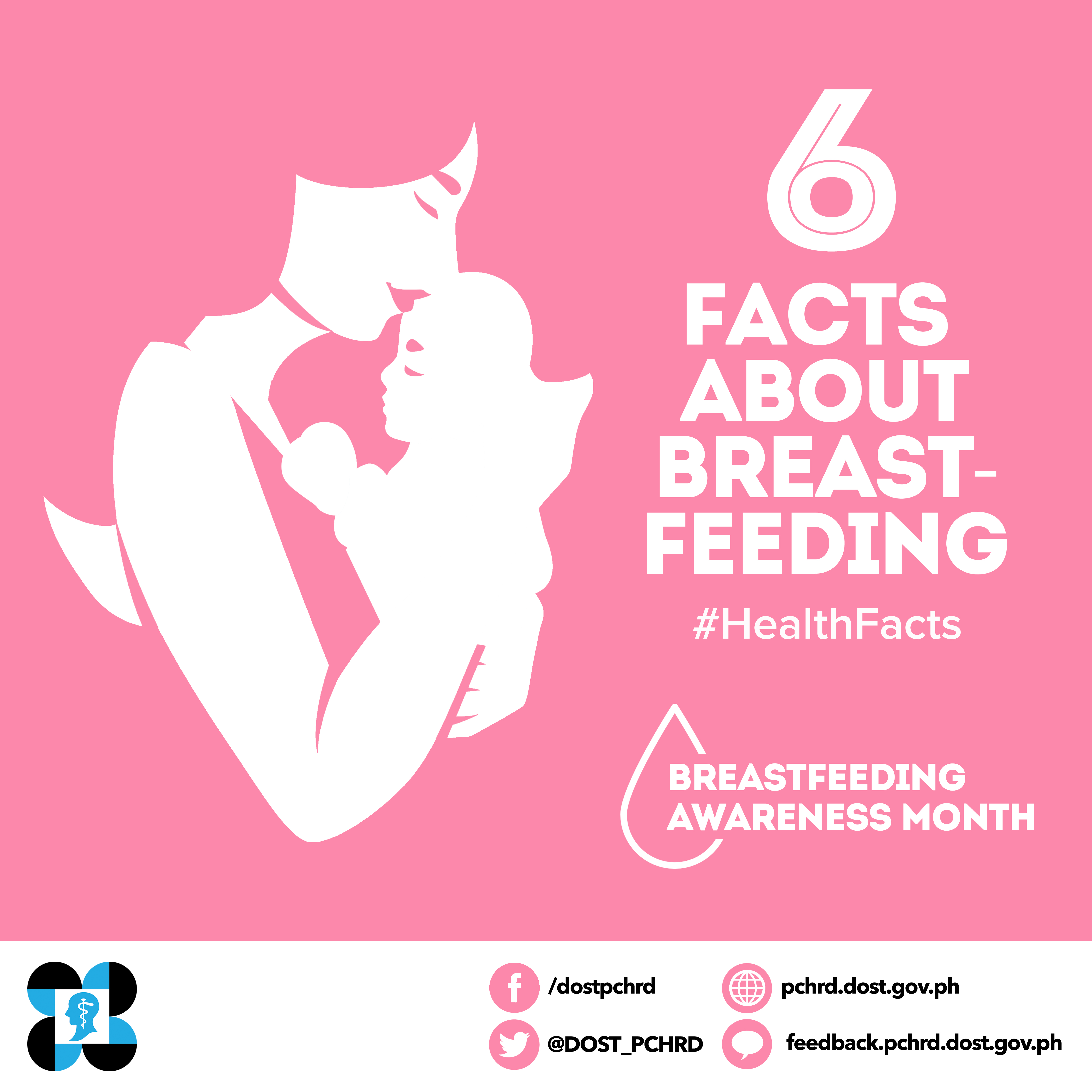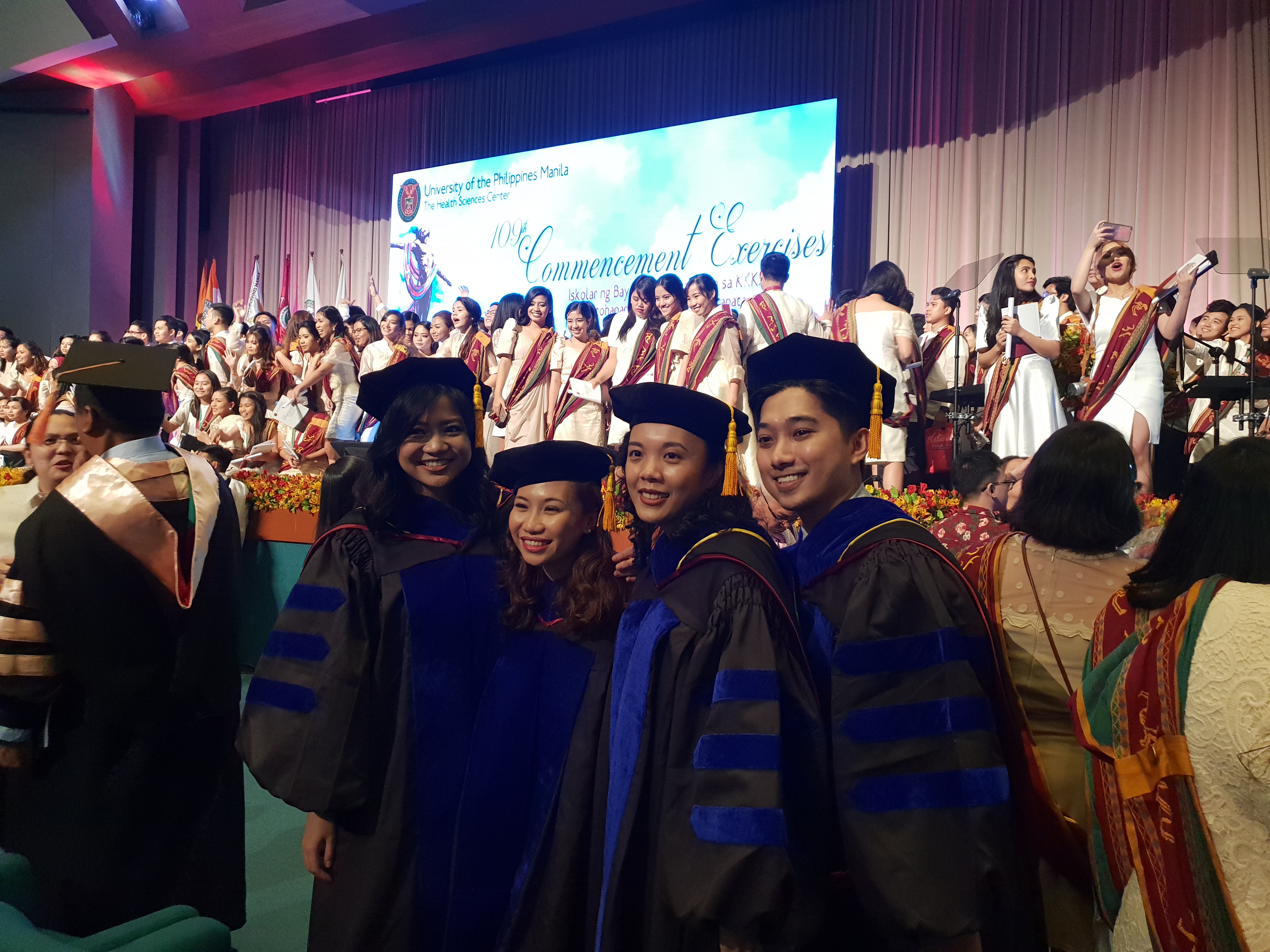
Pursuant to the Republic Act 10028, otherwise known as the Expanded Breastfeeding Promotion Act of 2009, we celebrate Breastfeeding Awareness Month during August every year to raise awareness and further promote breastfeeding in the country.
Breastfeeding is one of the safest and cost-effective ways to protect babies, young children, and their mothers against morbidity and mortality. As we celebrate the National Breastfeeding Awareness Month, here are some facts you should know about breastfeeding:
- Infants should be exclusively breastfed for the first six months.
For the first six months of life, newborns must only receive breastmilk without any additional food and water. Giving water at this early age endangers babies to diarrhea and malnutrition. Children should be breastfed up to two years and beyond.
- Breastfeeding improves infant and maternal health.
Breastmilk contains nutrients and antibodies which help improve infant’s sensory and cognitive development, and lowers the risk of chronic conditions such as obesity, cholesterol, allergies, diabetes, asthma, cancer, high blood pressure, and pneumonia.
Breastfeeding not only creates a special bond between mother and child but also helps mothers to reduce the risk of breast cancer and ovarian cancer.
- HIV transmission through breastfeeding can be reduced with drug treatment.
HIV positive women can pass on the virus during pregnancy, childbirth, or breastfeeding. Infected women produce lower levels of protective antibody that fights diarrhea and other respiratory infections. However, the World Health Organization (WHO) advised infected women or their infant to undergo antiretroviral treatment throughout the breastfeeding period until the infant reach 12 months old to reduce the risk of transmitting HIV.
- Complementary foods are advisable in addition to breastmilk.
Complementary feeding is the transition from exclusive breastfeeding to family foods. Appropriate complementary foods should be added to the child’s diet if the breastmilk is no longer enough to meet the child’s nutritional requirements which covers the period from six months and above. Foods must be prepared safely with right amount and texture according to child’s age.
According to the World Health Organization, in addition to breastmilk, “Infants should start receiving complementary foods at 6 months, initially 2-3 times a day between 6-8 months, increasing to 3-4 times daily between 9-11 months and 12-24 months with additional nutritious snacks offered 1-2 times per day, as desired.”
- Infant formula is not recommended as replacement for breast milk.
The Revised Implementing Rules and Regulations of Executive Order No. 51 in the country, otherwise known as ‘Milk Code’ does not recommend infant or formula milk as replacement food for infants. Formula milk is harder to digest than breastmilk. It can be easily contaminated due to unpurified water, unsterilized containers and utensils, or even due to existing bacteria in the formula. Although breastmilk has been replicated, the nutrients it contains are not enough for child’s health needs.
- Breastfeeding, working moms are supported by law.
The Expanded Breastfeeding Promotion Act requires all health and non-health facilities and establishments to allocate space for lactation stations. The Act gives breastfeeding mothers additional break in addition to the regular time-off for meals to express their breast milk.
The Philippine Council for Health Research and Development (PCHRD) supports the programs and advocacies on proper breastfeeding.
In fact, the National Unified Health Research Agenda (NUHRA), the consolidation of health research priorities of the country, identifies the importance of breast feeding research under the Research to enhance and extend healthy lives research priority area.
The Council supported a research program entitled, “Influences of Maternal Dietary Intake and Nutritional Status on the Microbiological and Chemical Compositions of Breast Milk from Selected Lactating Filipino Women at 0 to 4 Months Post-Partum” which aimed to establish the factors affecting the composition, physicochemical characteristics, and the microbiology of breast milk obtained from Filipino lactating women.
With the existing policies and laws, the Council looks forward to supporting more researches and programs that will benefit mothers and babies.
For more information about NUHRA and the priority areas, download the NUHRA now!
Details
Written by Lemuel Basierto
Created: 24 August 2018



